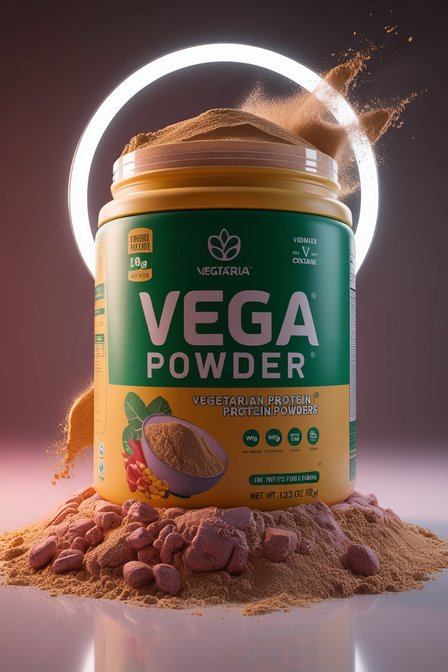Understanding Vegan Protein Supplements
Vegan protein supplements have gained significant popularity over the past decade, driven by an increasing awareness of plant-based diets' health benefits and environmental sustainability. These supplements are designed to provide the necessary protein intake for individuals following a vegan lifestyle, ensuring they meet their nutritional needs without consuming animal products.
The Rise of Plant-Based Nutrition
The shift towards plant-based nutrition is not just a trend; it represents a significant change in dietary habits influenced by ethical, health, and environmental considerations. Vegan protein supplements play a crucial role in this transition, offering a convenient and efficient way to boost protein intake. They are particularly beneficial for athletes, bodybuilders, and anyone with increased protein requirements.
Sources of Vegan Protein
Vegan protein supplements are derived from various plant sources, each offering unique nutritional benefits. Some of the most common sources include pea protein, rice protein, hemp protein, and soy protein. These plant-based proteins are often combined to create a complete amino acid profile, mimicking the benefits of animal-based proteins.
Pea Protein
Pea protein is derived from yellow split peas and is known for its excellent digestibility and amino acid profile. It is rich in branched-chain amino acids (BCAAs), which are vital for muscle growth and repair. Pea protein is also hypoallergenic, making it a suitable option for individuals with food sensitivities.
Rice Protein
Rice protein is another popular choice, especially for those with soy or dairy allergies. While it lacks some essential amino acids, it is often combined with other plant proteins to enhance its nutritional profile. Rice protein is easily digestible and gentle on the stomach, making it a preferred option for people with digestive issues.
Hemp Protein
Hemp protein is made from the seeds of the hemp plant and is a complete protein, meaning it contains all nine essential amino acids. It is also rich in omega-3 and omega-6 fatty acids, which are beneficial for heart health. Additionally, hemp protein contains a significant amount of fiber, aiding in digestion and promoting satiety.
Soy Protein
Soy protein is one of the most well-researched plant proteins and is considered a complete protein. It contains all essential amino acids and is rich in BCAAs. Soy protein is also known for its potential health benefits, including reducing cholesterol levels and improving heart health.
Health Benefits of Vegan Protein Supplements
Vegan protein supplements offer numerous health benefits beyond providing essential nutrients. They are typically lower in calories and fat compared to animal-based proteins, making them an excellent choice for weight management. Additionally, they are free from cholesterol and saturated fats, promoting heart health.
Muscle Building and Repair
Protein is essential for muscle building and repair, and vegan protein supplements can effectively support these processes. The BCAAs in vegan proteins, particularly leucine, play a crucial role in muscle protein synthesis, aiding in muscle recovery and growth.
Digestive Health
Vegan protein supplements, especially those from sources like hemp and pea, are rich in fiber, which promotes digestive health. Fiber aids in regular bowel movements and prevents constipation, contributing to overall digestive wellness.
Weight Management
Vegan protein supplements can support weight management by promoting satiety and reducing overall calorie intake. The high fiber content in these supplements helps individuals feel fuller for longer, reducing the likelihood of overeating.
Heart Health
Plant-based proteins are generally lower in cholesterol and saturated fats, reducing the risk of heart disease. The omega-3 and omega-6 fatty acids in hemp protein, in particular, are beneficial for heart health, helping to reduce inflammation and improve cardiovascular function.
Environmental and Ethical Considerations
Choosing vegan protein supplements aligns with ethical and environmental values. The production of plant-based proteins has a lower environmental impact compared to animal-based proteins. It requires fewer resources, such as water and land, and produces fewer greenhouse gases, contributing to sustainability.
Ethical Considerations
For many individuals, the choice to consume vegan protein supplements is driven by ethical considerations. Avoiding animal products aligns with a commitment to reducing animal suffering and promoting animal welfare. Vegan protein supplements provide a way to meet nutritional needs without compromising ethical beliefs.
Environmental Impact
The environmental impact of food production is a growing concern, and plant-based proteins offer a more sustainable alternative. The production of vegan protein supplements typically results in lower carbon emissions, reduced water usage, and less deforestation compared to animal-based protein production. This makes them a more environmentally friendly choice.
Choosing the Right Vegan Protein Supplement
With the variety of vegan protein supplements available, choosing the right one can be challenging. It is essential to consider factors such as protein content, amino acid profile, taste, digestibility, and any potential allergens. Here are some tips to help you make an informed decision:
Protein Content and Amino Acid Profile
Check the protein content per serving to ensure you are getting an adequate amount of protein. Additionally, look for a supplement that offers a complete amino acid profile or combines multiple plant proteins to achieve this.
Taste and Texture
The taste and texture of vegan protein supplements can vary significantly. Some people prefer the mild taste of rice protein, while others might enjoy the nuttiness of hemp protein. Trying different options or choosing flavored supplements can help find one that suits your taste preferences.
Digestibility
Digestibility is an important factor, especially for individuals with sensitive stomachs. Pea protein and rice protein are generally well-tolerated and gentle on the digestive system. If you have known food allergies or intolerances, choose a supplement free from those specific allergens.
Allergen-Free Options
Many vegan protein supplements are free from common allergens such as gluten, soy, and dairy. If you have allergies or intolerances, carefully read the labels to ensure the supplement is safe for you to consume.
Incorporating Vegan Protein Supplements into Your Diet
Incorporating vegan protein supplements into your diet can be simple and convenient. They can be added to smoothies, mixed with water or plant-based milk, or used in baking and cooking. Here are some creative ways to include them in your meals:
Smoothies and Shakes
One of the most popular ways to consume vegan protein supplements is by adding them to smoothies and shakes. Blend your favorite fruits, vegetables, and a scoop of protein powder for a nutritious and delicious meal replacement or post-workout recovery drink.
Baking
Vegan protein supplements can be used in baking to boost the protein content of your favorite recipes. Add them to pancakes, muffins, or protein bars for a healthy snack option. Just be mindful of the texture and moisture content, as protein powders can affect the final product's consistency.
Cooking
Incorporate protein powder into savory dishes like soups, stews, and sauces. It can be an excellent way to enhance the nutritional value of your meals without altering the taste significantly. Experiment with different recipes to find what works best for you.
Potential Side Effects and Considerations
While vegan protein supplements offer numerous benefits, it is essential to be aware of potential side effects and considerations. Overconsumption of protein, regardless of the source, can strain the kidneys and liver. It is crucial to consume protein supplements in moderation and as part of a balanced diet.
Allergic Reactions
Although many vegan protein supplements are hypoallergenic, some individuals may still experience allergic reactions. Always check the ingredient list and consult with a healthcare provider if you have known allergies.
Digestive Issues
Some people may experience digestive issues such as bloating or gas when consuming protein supplements. This can be due to the fiber content or other ingredients used in the supplement. Start with a smaller serving size and gradually increase to assess your tolerance.
Conclusion
Vegan protein supplements are an excellent addition to a plant-based diet, providing essential nutrients and supporting overall health. They offer numerous benefits, from muscle building and weight management to heart health and digestive wellness. By choosing vegan protein supplements, individuals can align their dietary choices with ethical and environmental values, contributing to a more sustainable and compassionate world. As with any supplement, it is essential to choose high-quality products, consume them in moderation, and incorporate them into a balanced diet for optimal health benefits.




